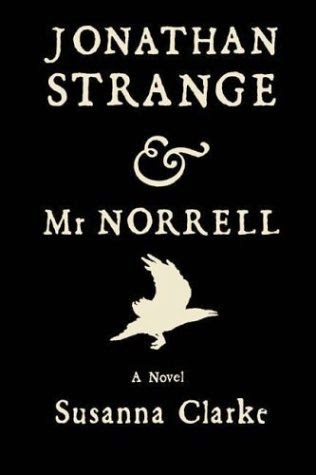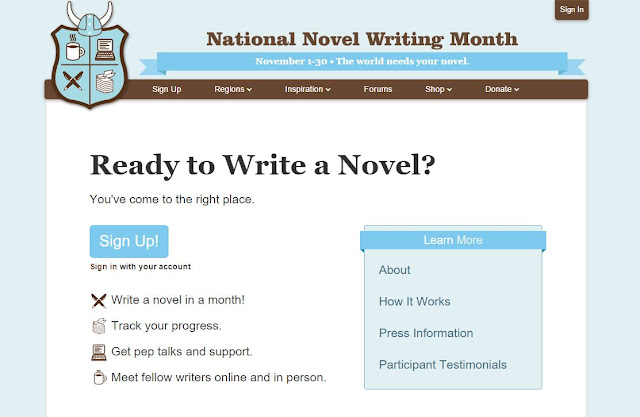REVIEW - JONATHAN STRANGE & MR NORRELL
This series took me longer than it could have to read. Like A Song of Ice and Fire and other vast, intense fantasy settings which contain mountains of their own lore, I find I sometimes need to take a rest from the series to let my brain acquaint itself properly with all the crazy new ideas and systems present in the book. In Strange & Norrell it was the system of magic that I found so very jarring to anything I'd previously read about or seen. This is not to say that it is a bad system. On the contrary I found it engaging, intriguing and highly inventive. But it was odd for someone who, like most of my generation, is more accustomed to the Harry Potter or Narnia brand of magic. It is not so much the magic system which is odd (a fairly regular blend of Force and Rule Magic with a hint of Wild Magic), rather it is the way it is studied and viewed by society. Instead of existing as something strange and mysterious, only practiced by a selection of special individuals who are privy to it's existence, magic is revered alongside law, medicine and history as a branch of academia once great and powerful but, at the beginning of the series, less popular and common. You see magic treated as a part of daily life by the entire populous, which makes for very interesting reading.
Reference is often given to the idea of the gentleman. What 'a gentleman' would and would not do often guides the actions of the protagonists, sometimes at crucial junctions. It is the inclusion of this way of thinking that makes Clarke's style reminiscent of the great romantic authors the 18th and 19th centuries, such as Jane Austen and Charlotte Bronte. The inclusion of scenes of romance and social drama further this allusion, which I suspect was made very deliberately for at some points Clarke's writing could be straight out of an Austen novel, but at others she seems to be satirising that style of writing.
The alternative view of history in Strange & Norrell is believable and engaging. The details about the various Napoleonic wars and the attention given to (albeit tweaked versions) of historical figures really makes you believe that these magicians had a hand in making British history. Lord Byron, who is included as an annoyingly foppish acquaintance of Strange's was probably my favourite inclusion. Clarke's characterisation was generally very strong - I developed a vivid idea of Norrell, Strange and Childermass in particular. I also found the volume of characters enjoyable - often attention is given to a new set of people who, at first might seem irrelevant but are always tied into the story in some important, and usually unpredictable, way. This style of writing is one of my favourites and is present, to some extent, in the writing of all my favourite authors: Martin, Ondaatje, Niffenegger, Eggers and Egan. Clarke was bold in that it wasn't until the twenty-third chapter that she introduces one of the main two protagonists. Yet this didn't detract from the story in any way. If anything it helps you empathise more thoroughly with both Strange and Norrell.
Finally, the footnotes. I thought they were excellent! Revolutionary! Because they really gave a feel for the way magic is viewed in the setting. I felt as though I was able to pry into some of the thousands of books contained in Gilbert Norrell's library at Hurtfew Abbey, and read the tales and lore of magic which Norrell spends years studying... Then I started reading The Colour of Magic - the first novel in Terry Pratchett's Discworld series. I still like the footnotes in Strange & Norrell but am starting to realise just how thorough Pratchett's influence on the world of fantasy writing has been, and perhaps realise where Clarke got the idea of including footnotes in fantasy..
Reference is often given to the idea of the gentleman. What 'a gentleman' would and would not do often guides the actions of the protagonists, sometimes at crucial junctions. It is the inclusion of this way of thinking that makes Clarke's style reminiscent of the great romantic authors the 18th and 19th centuries, such as Jane Austen and Charlotte Bronte. The inclusion of scenes of romance and social drama further this allusion, which I suspect was made very deliberately for at some points Clarke's writing could be straight out of an Austen novel, but at others she seems to be satirising that style of writing.
The alternative view of history in Strange & Norrell is believable and engaging. The details about the various Napoleonic wars and the attention given to (albeit tweaked versions) of historical figures really makes you believe that these magicians had a hand in making British history. Lord Byron, who is included as an annoyingly foppish acquaintance of Strange's was probably my favourite inclusion. Clarke's characterisation was generally very strong - I developed a vivid idea of Norrell, Strange and Childermass in particular. I also found the volume of characters enjoyable - often attention is given to a new set of people who, at first might seem irrelevant but are always tied into the story in some important, and usually unpredictable, way. This style of writing is one of my favourites and is present, to some extent, in the writing of all my favourite authors: Martin, Ondaatje, Niffenegger, Eggers and Egan. Clarke was bold in that it wasn't until the twenty-third chapter that she introduces one of the main two protagonists. Yet this didn't detract from the story in any way. If anything it helps you empathise more thoroughly with both Strange and Norrell.
Finally, the footnotes. I thought they were excellent! Revolutionary! Because they really gave a feel for the way magic is viewed in the setting. I felt as though I was able to pry into some of the thousands of books contained in Gilbert Norrell's library at Hurtfew Abbey, and read the tales and lore of magic which Norrell spends years studying... Then I started reading The Colour of Magic - the first novel in Terry Pratchett's Discworld series. I still like the footnotes in Strange & Norrell but am starting to realise just how thorough Pratchett's influence on the world of fantasy writing has been, and perhaps realise where Clarke got the idea of including footnotes in fantasy..


